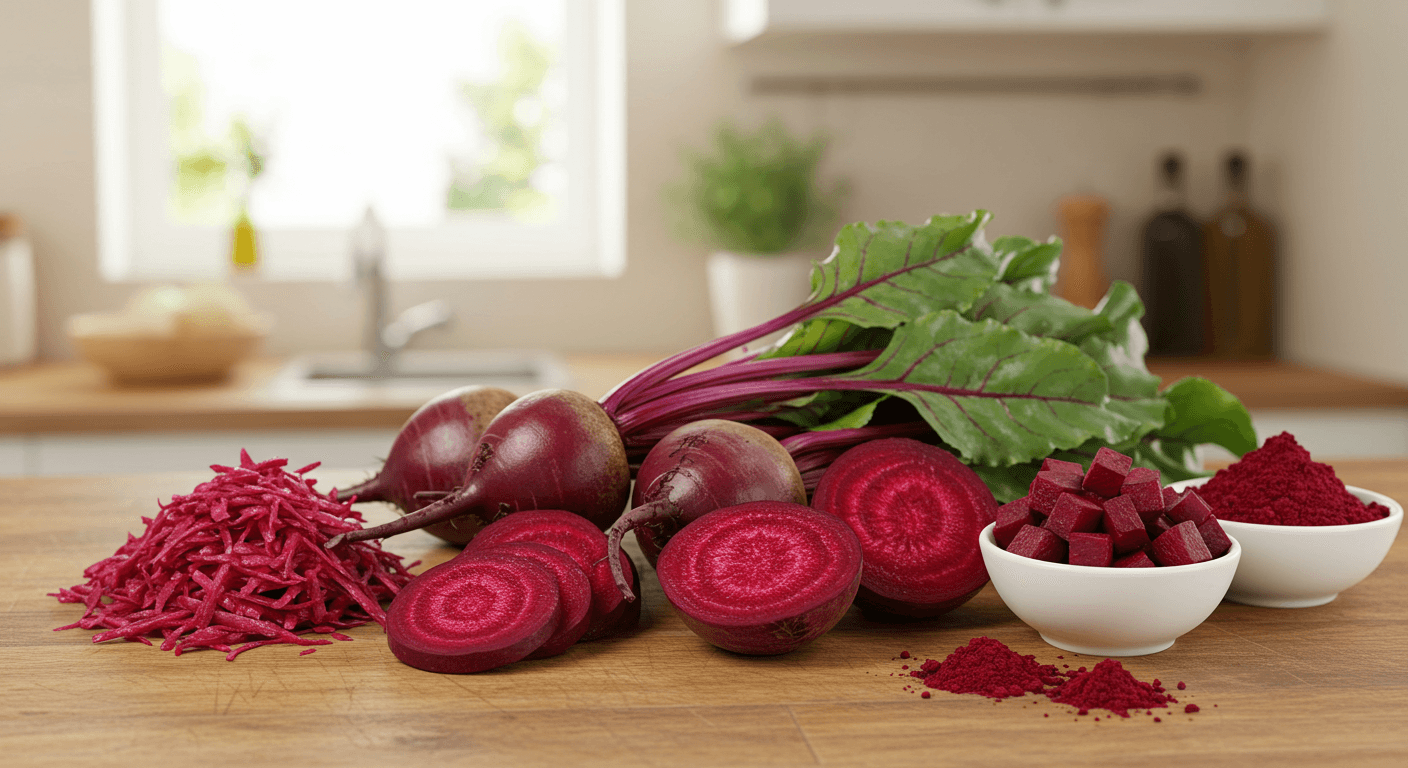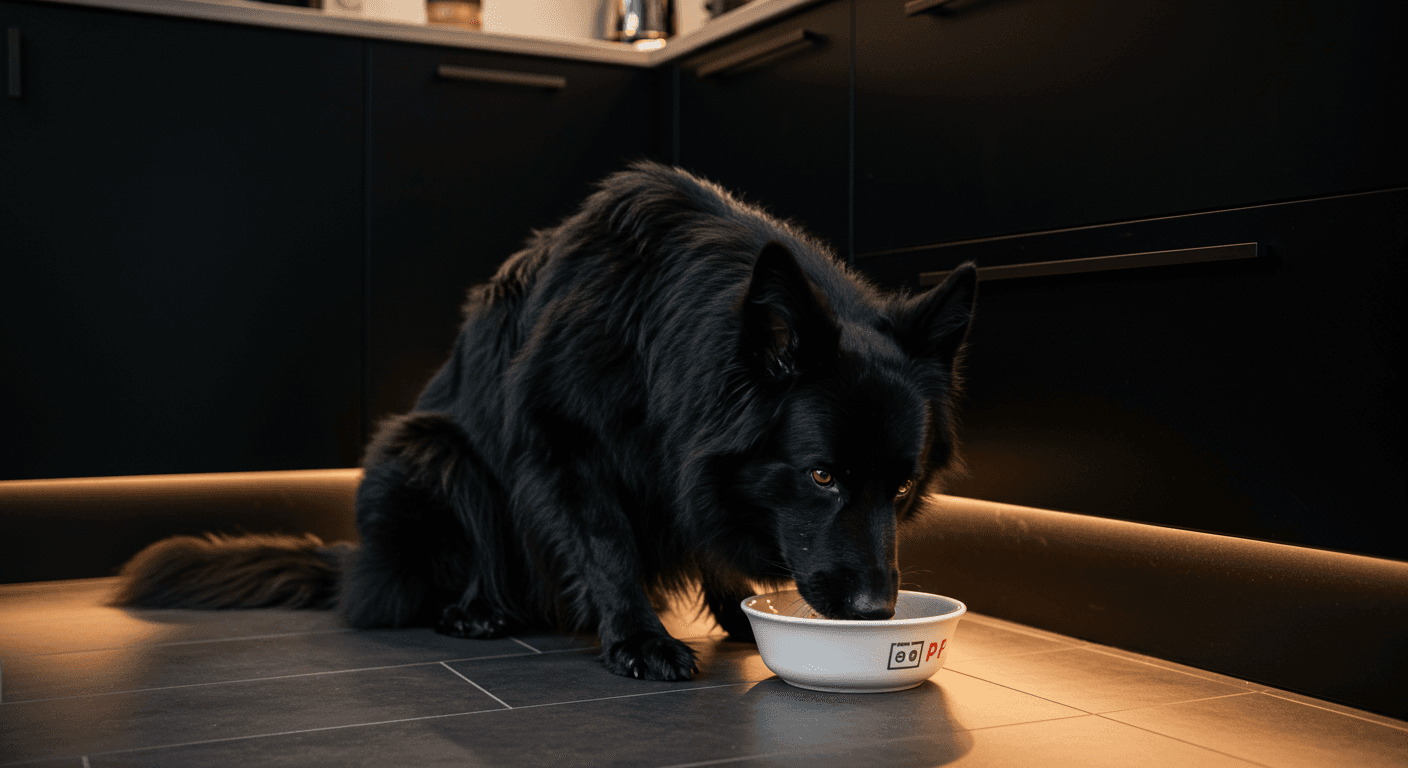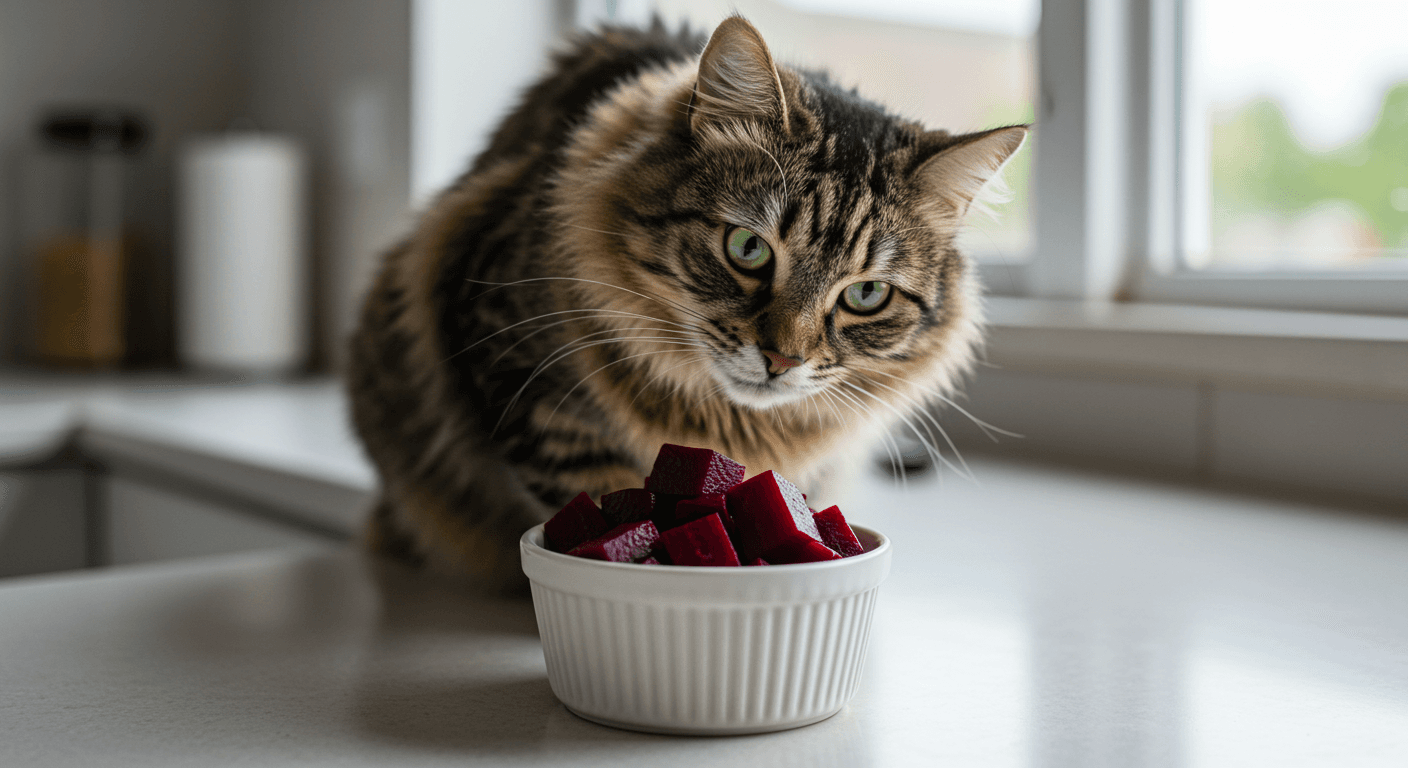Beets are a colorful, sweet-tasting veggie that many of us enjoy in salads and side dishes. But if you’ve ever caught yourself wondering, “can dogs eat beets?” you’re certainly not alone. After all, we’re constantly on the lookout for healthy ways to add variety to our dog’s diet. In this post, I’ll walk you through why beets can be a nutritious snack, how to serve them safely, and what to watch out for—so you can decide if beets are right for your best friend.
Why Consider Beets in Your Dog’s Diet

Ever feel like your dog could benefit from a little extra fiber for dogs? Beets might help with that:
• They’re packed with fiber to support digestion and help keep things moving.
• They offer key nutrients like vitamin C for dogs, folate, potassium, manganese, magnesium, and iron.
• They’re loaded with canine antioxidants (betalains) that may support a stronger immune system.
• They’re naturally low in calories and fat, offering a guilt-free treat option.
Just remember: beets should complement, not replace, a balanced dog food. Think of them as an extra boost, kind of like a tasty topping on your dog’s regular meals.
Health Benefits of Beets for Dogs
When given in the right amount, beets can lend a helping hand to your dog’s wellness:
• Digestive Health: Extra fiber can be great if your pup’s a bit backed up.
• Skin and Coat: Nutrients like vitamin C and antioxidants can help keep that fur shiny.
• Immune Support: Minerals like manganese, magnesium, and folate are essential for healthy cells.
• Heart and Circulation: Beets contain natural nitrates that could support healthy blood flow.
• Weight Management: If your dog’s on a diet, beets (in moderation) can be low-calorie treats.
• Antioxidant Action: The bright pigments in beets may help reduce inflammation.
“A lot of veterinarians suggest incorporating small portions of veggies like beets as a source of fiber and micronutrients. Just make sure to introduce new foods gradually.”
The Benefits of Eating Beets – Dr. Berg
Can Dogs Eat Beets Safely? Assessing Risks
So, can dogs eat beets without trouble? Generally yes, but keep these points in mind:
• Oxalates and Kidney Health: Beets have a good amount of oxalates, which can contribute to kidney or bladder stones in certain dogs. If your pup has a history of urinary issues, check with your vet first.
• Sugar Content: Beets are naturally sweet. If your dog is diabetic or overweight, you’ll want to limit them.
• Digestive Upset: Going overboard on fiber can lead to tummy troubles like gas or diarrhea. Start slowly to see how your dog reacts.
• Allergic Reactions: While uncommon, allergies to beets can happen. Watch for itching, rashes, vomiting, or diarrhea.
• Staining: Don’t be alarmed if your dog’s urine or poop looks a little pink after chomping on beets. It’s normal and goes away after a short while.
Forms of Beets—What’s Safe and What to Avoid

Dogs can enjoy beets in several ways, but some forms are better than others.
Fresh Beets
Fresh beets are your safest bet. You can serve them raw if they’re shredded or grated, but lightly cooking them (without seasonings) makes them easier to digest and reduces the risk of choking.
Can Dogs Eat Canned Beets?
Generally speaking, you want to proceed with caution here. Many canned beets come loaded with salt or preservatives that are hard on your dog’s system. If canned beets are your only option, rinse them thoroughly and look for low- or no-sodium varieties. Fresh is still the way to go whenever possible.
Can Dogs Eat Pickled Beetroot?
Pickled beetroot is a no-go. The vinegar, salt, sugar, and spices used in pickling can upset your dog’s stomach or potentially be harmful in higher amounts. It’s best to skip pickled anything when it comes to feeding your furry friend.
Beet Greens
Beet greens are super nutritious but contain even more oxalates than the root. If your dog is prone to kidney issues, definitely steer clear. Otherwise, a small amount of well-cooked, plain beet greens can be okay occasionally—but make sure they’re thoroughly washed first.
Freeze-Dried and Powdered Beets
You’ll find some dog treats with beet powder or freeze-dried beets. These can be convenient for a fiber and antioxidant boost, but read labels carefully. Avoid products with added sugar, salt, or artificial flavors.
How to Properly Prepare Beets for Dogs
Serving beets the right way is key to avoiding any digestive hiccups:
- Go organic if you can. Less chemical residue, more peace of mind.
- Rinse and peel. Remove the skin to reduce pesticides and make it gentler on their stomach.
- Cook for easier digestion. Boil, steam, or roast them—then cut into tiny pieces or mash, depending on your dog’s size.
- Stick to plain. Skip the salt, seasonings, butter, or oils.
- Slowly introduce. Begin with about one teaspoon of cooked beet per 10 pounds of body weight. Watch for any signs of trouble.
- Blend it in. Offer beets as a topper on your dog’s normal food or as a minuscule side snack.
- Moderation is everything. Treats like beets shouldn’t exceed 10% of your dog’s daily calories.
Serving Beets: Step-by-Step Guide

If you’re ready to give this veggie a try, here’s a quick game plan:
- Pick up fresh, high-quality beets (ideally organic).
- Clean and peel thoroughly.
- Cook without seasoning—boil, steam, or roast until soft.
- Let them cool, then chop or mash into little pieces.
- Offer a tiny portion—about a teaspoon for small dogs, a tablespoon or so for large breeds.
- Mix with their regular food or serve solo, but keep it minimal.
- Observe for one to two days for any fussing, vomiting, or skin issues.
- If all’s good, apply the “once in a while” rule to keep it special.
“Don’t panic if you notice pink waste afterward—beets are known for their vibrant coloring!”
Types of Dogs Who Should Avoid Beets
While most pups can enjoy a bite of beet now and then, some need to steer clear:
• Dogs with a track record of kidney or bladder stones.
• Diabetic or overweight dogs (due to natural sugars).
• Dogs who’ve shown a past sensitivity or are prone to food allergies.
When in doubt, it’s worth firing off a quick message or call to your vet for personalized advice for diabetic dogs.
Can Cats Eat Beets?

Funny enough, your cat might also seem interested in this crunchy vegetable. Cats are true carnivores, so they don’t really require beets in their diet. Tiny, occasional nibbles of plain, cooked beet won’t typically harm them, but larger portions may upset their stomach. If you’re curious about “can cats eat beets” or “can cats have beets,” know that it’s not toxic in small amounts, but it’s also not something cats truly need. Always chat with a vet if you’re unsure.
In short, can dogs eat beets? Absolutely—as long as you keep it simple, safe, and moderate. Fresh, cooked, and unseasoned beets can offer a digestive and immune boost, but they aren’t a huge dietary requirement. Steer clear of pickled varieties, be cautious with canned versions, and remember that dogs with kidney issues or weight concerns might need to sit this one out. By taking it slow and paying attention to any reactions, you’ll know if beets can become a tasty (and healthy) treat in your dog’s life.



